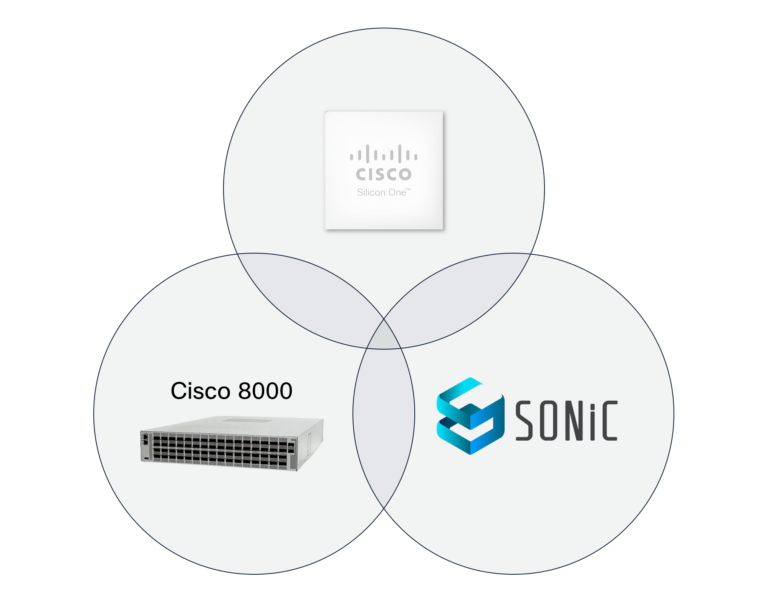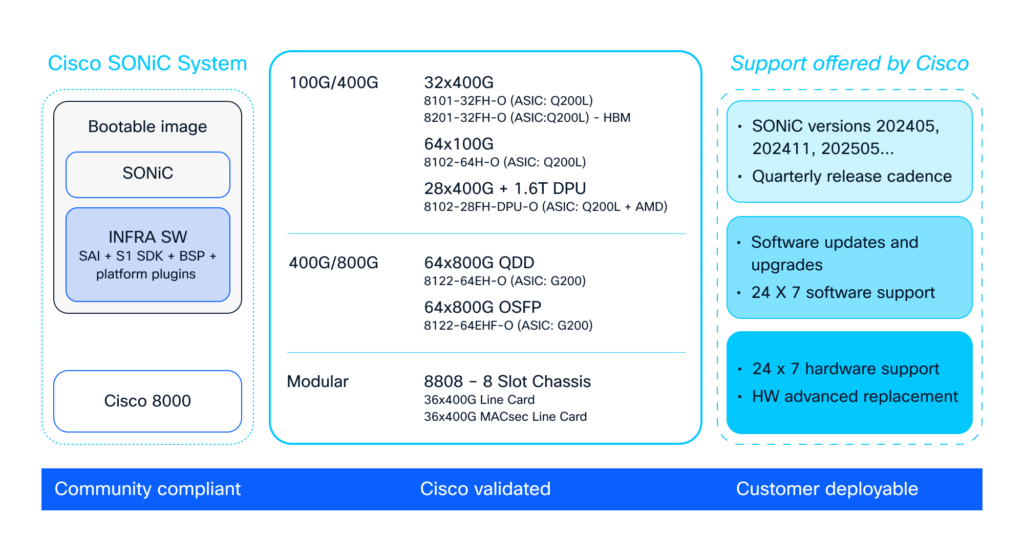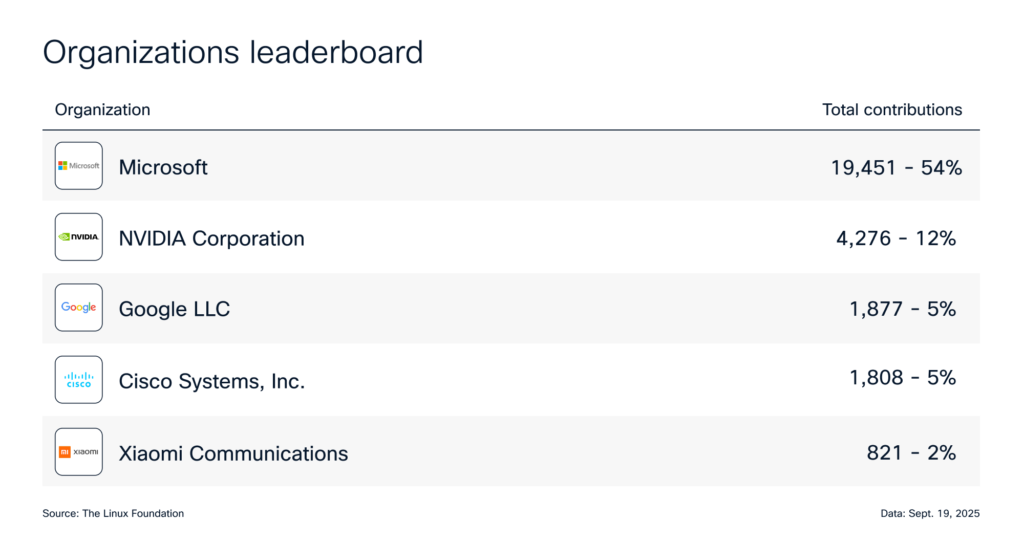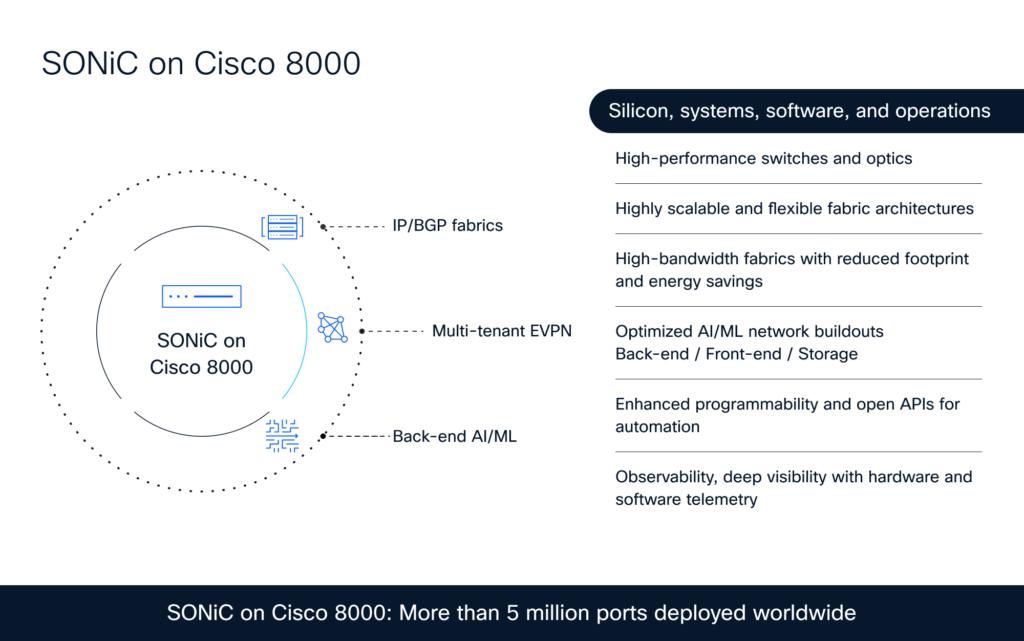Table of Contents
Satisfying the needs of every client in the AI age
As the demands of AI and artificial intelligence (AI/ML) continue to rise, organizations of every dimension– consisting of enterprises, company, neoclouds, and hyperscalers– are reimagining their information facility networks. The period of typical high-performance computer (HPC) networks is giving way to a brand-new generation of designs designed to deliver smooth scalability, high performance, and the versatility called for by contemporary AI/ML work.
Scaling for AI/ML is no more practically including more ability; it requires basically new techniques that prioritize open, lasting, and vendor-agnostic options.
Disaggregated styles go to the center of this advancement, enabling companies to decouple software and hardware components. This strategy allows for independent scaling, more granular control over sources, and the ability to blend and match best-of-breed innovations. By leveraging disaggregated designs, companies obtain the dexterity to adjust rapidly, take advantage of open-source modern technologies to prevent lock-in, and make sure reliable resource application throughout progressively complicated atmospheres.
Cisco 8000 Series and SONiC: Customized for modern demands
Cisco is leading the AI networking transformation, embracing disaggregated designs and meeting customers any place they are in the electronic improvement trip. For consumers seeking choice and visibility in their network running systems, Cisco offers robust support for Software Application for Open Networking in the Cloud (SONiC) on Cisco 8000 Collection switches over powered by Silicon One. This service equips companies to choose the network running system that best fits their functional requirements, including open resource, while making the most of Cisco industry-leading equipment capacities.
A key enabler of this adaptability is the Switch Abstraction User Interface (SAI), a core element of SONiC. SAI provides ASIC and equipment abstraction, permitting smooth transportability of network running systems across diverse hardware platforms (Figure1 This abstraction layer makes it possible for suppliers to provide consistent shows user interfaces to their ASICs, while likewise enabling the growth of highly separated hardware options.


Number 1: Building versatile, scalable, and sustainable network frameworks
Cisco 8000 Collection switches , powered by Silicon One, supply a vast array of rates– from 100 G to 400 G, 800 G, and quickly 1 6 T– making them optimal for both general-purpose information facilities and the most requiring AI/ML collections. By combining the high performance of Cisco Silicon One, the innovative switching abilities of Cisco 8000 Series switches over, and the SONiC open, modular style, organizations can confidently develop adaptable, scalable, and lasting network facilities. This service enables smooth provisioning and operations throughout numerous vendors and a variety of usage instances, empowering customers to update and broaden their data facilities to fulfill the challenges and possibilities of the AI age.

 Number 2: Cisco 8000 Series SONiC Portfolio
Number 2: Cisco 8000 Series SONiC Portfolio
Sustaining diverse architectures for numerous usage cases
Sustaining diverse styles is essential for AI/ML atmospheres because it makes it possible for organizations to successfully deal with a large range of performance, scalability, and workload demands, guaranteeing ideal network dexterity and resource application as demands develop.
Cisco 8000 Collection systems with SONiC equip three essential data facility architectures:
- IP/BGP fabric:
The most commonly released fabric design, IP/BGP supports both two-tier and three-tier Clos layouts. It supplies simpleness, scalability, and a mature feature established for both IPv 4 and IPv 6, making it suitable for companies seeking a tested and durable front-end network. - VXLAN EVPN textile:
Advanced, multitenant networks are powered by attributes like EVPN multi-homing, host mobility, and seamless work movement. This version is ideal for company and ventures modernizing their front-end settings. - AI/ML backend textile:
Purpose-built for the most requiring AI/ML applications, this remedy features a lossless, non-blocking layout and supports a wide range of AI network architectures– including fat-tree and rail-optimized layouts. Advanced functions such as QPID hashing and flexible directing and changing (ARS) with flowlet tons harmonizing and package spraying optimize website traffic distribution. Enhanced blockage administration– consisting of assistance for Remote Direct Memory Access over Converged Ethernet v 2 (RoCEv 2, Priority Circulation Control (PFC), and Explicit Blockage Notice (ECN)– makes certain high throughput and reduced latency, also at scale. In addition, integrated AI observability devices supply deep visibility into network procedures, making this solution ideal for sustaining large-scale AI/ML clusters across diverse geographies.
Flexible SONiC usage versions on Cisco 8000 Collection switches over
For SONiC intake on Cisco 8000 Series platforms, Cisco supplies adaptable alternatives to match varied client needs, consisting of:
- Deep combination and modification:
Resource code sharing for hyperscale clients allows tailored SONiC implementations. - Ready-to-deploy services:
Fully assembled SONiC pictures are offered for prompt, dependable deployment. - Build-your-own adaptability:
SDK, SAI, and system code binaries are offered customers that intend to assemble their own SONiC service on Cisco hardware.
Our flexible SONiC usage designs on high-performance Cisco 8000 Series changes empower every organization to adopt SONiC in a way that lines up with their operational and business goals. With abundant function assistance, boosted programmability, open APIs, automation, and extensive observability via deep software and hardware telemetry, customers can future-proof their investments, streamline operations, and increase development– while maintaining the flexibility to select options that ideal fit their requirements.
E mpowering the SONiC Ecosystem: Cisco management, investment, and area involvement
Cisco is not just adjusting to the AI era– we’re leading it.
We are among the leading 5 contributors to the SONiC area, actively participating in crucial working teams and constantly purchasing new features, integrations, and improvements. This deep community interaction guarantees that our clients gain from the current technologies and market finest practices, driving a much more durable and interoperable open networking community.


Number 3: Top contributors to the SONiC Foundation
See technology in action at the 2025 OCP International Top!
Join us at the 2025 OCP International Summit to experience Cisco leadership firsthand. Discover how Cisco 8000 Series changes and SONiC can aid you construct a contemporary, open, and scalable AI-ready information facility– enhancing efficiency for every usage instance, from front-end multitenant atmospheres to high-performance AI/ML backends (Figure4


Number 4: SONiC on Cisco 8000 Series changes
See the Cisco booth at OCP to see our solutions stay in action and welcome the chance to transform your data facility framework for the AI period.

